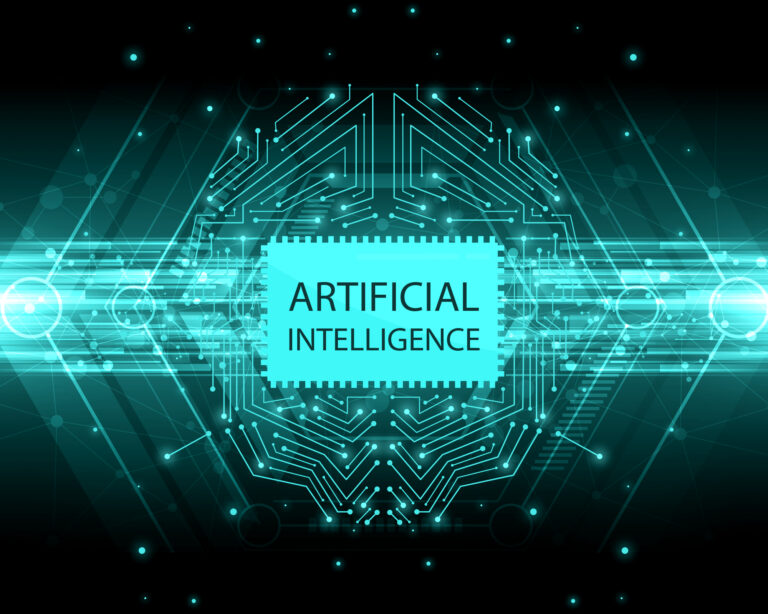Artificial intelligence (AI) is no longer just a buzzword but a tangible technology that is transforming multiple industries. The applications of AI are diverse and can range from enhancing healthcare to revolutionizing customer service. While the media often focuses on AI’s potential to take over jobs, it is essential to acknowledge the many benefits that AI brings to businesses and society as a whole. In this article, we will explore the real-world applications of artificial intelligence and how they are changing the way we live and work.
Enhancing Healthcare
One of the most promising applications of AI is in healthcare. The integration of AI can help healthcare providers to diagnose and treat patients more accurately and efficiently. For instance, AI can be used to analyze medical images, such as X-rays and MRIs, to identify abnormalities that might not be noticeable to the human eye. This can lead to early detection of diseases and faster treatment.
AI can also be used to predict disease outbreaks by analyzing data from various sources, including social media, news, and weather reports. This can help health organizations to prepare for outbreaks and prevent them from spreading.
Another application of AI in healthcare is the development of personalized medicine. AI algorithms can analyze a patient’s medical history, lifestyle, and genetic makeup to create a personalized treatment plan that is tailored to their specific needs. This can lead to better treatment outcomes and lower healthcare costs.
Improving Customer Service
Another area where AI is making a significant impact is in customer service. AI-powered chatbots are becoming increasingly popular as they can provide instant support to customers, without the need for human intervention. Chatbots can answer simple queries, provide product information, and even process orders. This helps businesses to provide round-the-clock customer support, without the need for additional staff.
AI-powered chatbots can also provide personalized recommendations to customers based on their purchase history and browsing behavior. This can help businesses to increase sales and improve customer satisfaction.
Enhancing Financial Services
AI is also transforming the financial services industry. Banks and financial institutions are using AI to analyze data and make better investment decisions. AI algorithms can analyze market trends, news, and social media to identify potential investment opportunities and risks.
AI is also being used to detect fraud and money laundering. AI algorithms can analyze transaction data and identify suspicious patterns that might be missed by human analysts. This can help financial institutions to prevent financial crimes and comply with regulations.
Improving Transportation
AI is also being used to improve transportation. Self-driving cars are already on the roads, and they have the potential to reduce accidents and traffic congestion. AI algorithms can analyze real-time traffic data to find the most efficient route for a self-driving car, leading to faster and safer journeys.
AI is also being used to optimize public transportation systems. AI algorithms can analyze passenger data and predict demand for different routes and times, helping transportation authorities to optimize schedules and routes to provide better service.
Challenges and Concerns
While the applications of AI are promising, there are also challenges and concerns that need to be addressed. One of the biggest challenges is the lack of transparency in AI algorithms. AI algorithms are often complex and opaque, making it difficult for humans to understand how they make decisions. This can lead to bias and discrimination, as AI algorithms can be trained on biased data.
Another concern is the potential for job displacement. While AI can improve efficiency and productivity, it can also lead to the automation of jobs, especially those that involve repetitive tasks. This can lead to job losses, especially in industries such as manufacturing and transportation.
Conclusion
In conclusion, the applications of AI are diverse and promising. AI is transforming industries such as healthcare, customer service, finance, and transportation, leading to better outcomes and improved efficiency. While there are challenges and concerns that need to be addressed, the benefits of AI are significant, and it has the potential to improve our lives in many ways. It is important for businesses and organizations to embrace AI and use it responsibly to ensure that it benefits society as a whole.
To address concerns about the lack of transparency in AI algorithms, it is essential to develop explainable AI. Explainable AI is AI that can be easily understood by humans, and it can help to increase trust in AI algorithms. This can be achieved by designing AI algorithms that provide explanations for their decisions.

